
43 minute read
2. Irizar and Sustainable Competitiveness
from Sustainability Report 2021
by Irizar
Priority SDGs
8.1. 8.2. 8.5 8.7 8.8
9.2. 9.4 9.5 9.B.
11.2. 11.6
12.2. 12.4 12.5 12.6 12.8
13.1. 13.3 Maintenance of economic growth Raising productivity through diversification, technology and innovation Achieving full employment and decent work Eradication of slavery, trafficking and child labour Protection of labour rights and safe work Promotion of inclusive and sustainable industry Infrastructure modernization, clean technology Increase in scientific research, technological capacity Development of national technology and research in developing countries.
Providing access to public transport Reduction of environmental impact in cities
Achieving the efficient use of natural resources Management of waste and chemicals Prevention, reduction, recycling and reuse of waste Adoption of sustainable practices in businesses Ensuring education for Sustainable Development Achieving sustainable tourism Strengthening resilience and adaptation Improving environmental education and awareness
Cross-cutting SDGs
5.1. 5.5
16.2. 16.5 16.7 16.10 16.11 Ending discrimination Ensuring the full participation of women and equal opportunities in leadership
Eradication of child abuse, exploitation, trafficking and exploitation Reducing corruption and bribery Promoting citizen participation Access to information and fundamental freedoms Promotion and application of laws and policies (HHRR)
2.1, About us
• Irizar S.Coop. and its business group • Strategic thoughts: Mission, Vision and Commitments • Brand, technology and sustainability
2.2. Our Sustainable Competitiveness
2.2.1. Sustainability as a strategic priority
2.2.2. Our global reference frameworks o 10 Principles of the United Nations Global Compact o The 2030 Agenda and the 17 United Nations SDGs
2.2.3. We are a responsible organization o We integrate sustainability in our strategy and management o Moving Forward in Transparency, Good Governance and Integrity. o We establish alliances and partnerships to promote sustainability
• More progress in integrating our contribution to the SDGs • Irizar disseminates and supports the SDGs in a campaign promoted by the Spanish United Nations Global Compact
2.1, About us
Irizar S.Coop. and its business group
Irizar is a business group with an international presence whose business is focussed on the passenger transport, electromobility, electronics, electric motors and generators, connectivity and energy sectors.
The Irizar Group is comprised of seven brands that have production operations in 13 plants spread across Spain, Morocco, Brazil, Mexico and South Africa. In addition, it has its own R&D centre, which looks at the applied research process and technological development of its own products and systems in the long-term.
Founded in 1889, Irizar today is a well-established Group made up of more than 2743 people in 2021, with a commercial presence in the five continents. It is geographically and industrially diversified, continuously growing and firmly committed to the brand, technology and sustainability.
With 456 million Euros of billing in 2021, slightly higher than the 433 million Euros in 2020 due the effects of Covid-19 (766 million in 2019, a historic year), it has a commercial presence on five continents and 22 of its own companies.
Most of the Irizar Group’s turnover, despite its growing diversification, is fundamentally based on the manufacture and sale of buses, coaches and components.
Irizar, S. Coop (Irizar) is the parent company of the conglomerate and its headquarters are located in Ormaiztegi (Gipuzkoa, Spain) where Creatio, the Group's Research and Development Centre, is also located.
Although this Sustainability Report has been produced by Irizar S. Coop., we believe that it is important to have the Group's perspective: to better understand its content, and because there are shared values, strategies and management models.
Irizar Mexico Irizar Mexico was founded in the city of Querétaro in 1999. It serves the high-end market with the Irizar i5, i6, i6S, and i8 models and is the supplier of choice for the largest road transport and passenger companies. Its market share has grown and now stands at 66%.
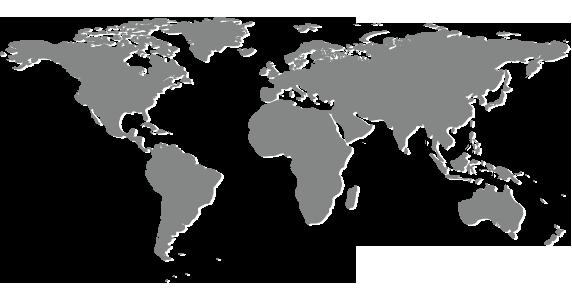
Irizar Brasil In 1998, Irizar Brasil was created, in the town of Botucatu, with the objective of breaking into the Latin American market. Positioned in the luxury coach segment with the Irizar i6 and i6S models, Irizar Brasil is established as a project with a strong commitment to exports. From Brazil, the Group serves the markets of South America, Central America, Africa, and Oceania. Irizar Maroc In 1996, the company Irizar Maghreb was established in Morocco. In 2002, the Irizar Century model was launched, and in 2008, a new plant was opened in Skhirat, with a production capacity of 1,000 coaches per year. In 2013, it began manufacturing buses for Europe. Following the launch of the Irizar i6 in 2014, and the Irizar i6S in 2017, Irizar Morocco is consolidated as one of the most expansive projects at the international level, being market leader in the luxury coach segment. Irizar Southern Africa
Irizar Southern Africa was created in 2004 in the city of Centurion (Pretoria). The plant serves the markets of South Africa, as well as neighbouring countries such as Namibia, Zimbabwe, Botswana, Zambia, Malawi, and Mozambique, among others. It covers the luxury coach segment with the Irizar i6 and i6S. Masats Accessibility systems for public transport vehicles.
Creatio Irizar Group's Research and Development Centre which was created in order to enhance the Group's applied research and technological development capabilities both for its own-brand products and for the main coach work components. Irizar Wide range of biodiesel, natural gas (CNG and LNG) hybrid and conventional integrated coaches and buses.
Irizar e-mobility Integral electromobility solutions for cities. 100% zero emissions, electric vehicles, charging systems, electric traction, energy management and storage.
Datik Integral fleet management IoT connected systems. ADAS (Advanced Driver Assistance System) solutions. Autonomous vehicles Alconza Engines and generators for the marine, hydroelectric and industrial sectors Jema Power electronics applied to network and transport quality. Power supplies for Big Science. Renewable energy, storage and Smart grids Electronics for coaches.
Hispacold Air conditioning systems for buses, coaches, and railway vehicles.
Irizar Benelux Created in 2018, it offers sales and after-sales service for integral electric buses and coaches throughout Benelux.
Irizar Asia Pacific Since 2006, Irizar has been present in Oceania, based in Melbourne, offering services to New Zealand and Australia.
Datik México The Datik branch in Mexico responds to the huge demand of the Mexican market, offering a close sales and after-sales service adapted to Mexican customers.
Own delegations
Jema USA Based in California, it offers customised services in the photovoltaic, storage, and advanced services sectors. Additionally, it has references throughout the US in each of these sectors.
Hispacold Mexico Founded in 2002, it is dedicated to the manufacture and supply of air conditioning systems for buses and coaches.
Irizar UK Founded in 2011, it distributes the full range of integral vehicles in the UK market. Irizar France Founded in 2011, Irizar Autocars offers sales and after-sales service to the French market with the full range of Irizar integral, electric, and hybrid vehicles.
Irizar USA Created in 2016 and based in Las Vegas, it covers the US market with the Irizar i6 model.
Irizar Italia Created in 1993 and based in Rimini, it offers service and a complete after-sales network throughout Italy.
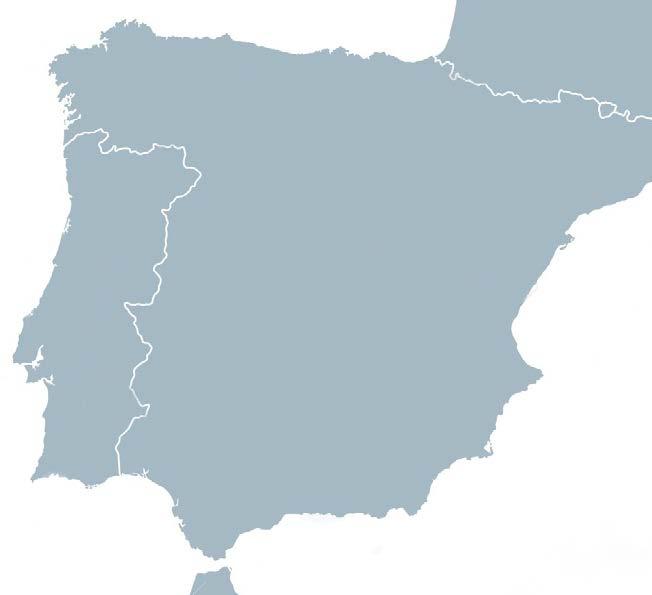
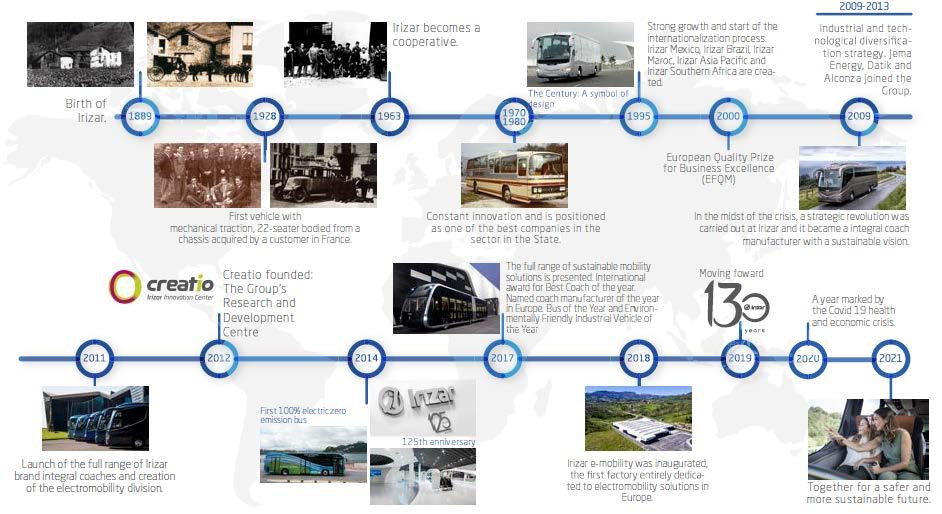
Our Strategic Thoughts are the fundamental principles that guide both the strategic decisions and the organisational culture of the Group. Strategic Thoughts are reviewed periodically (taking into account aspects of the economic and social environment, the sector, market, competition, and the other internal and external stakeholders) and defined and shared by all the people in the organisation. There is a specific day long meeting with everyone at Irizar in every review to reinforce awareness of the strategic thoughts.
In the reviews done every three of four years an in depth SWOT analysis of the strategic thoughts is done, taking into account issues from the economic-governance, social and environmental area. That is done to set priorities and define actions with the goal of making the strategy be aligned with the expectations of all the stakeholders and thus guarantee their needs, sustainable growth for the business and creating value, wealth and employment, as our mission states. Those strategic priorities and activities are derived from the participation of all the people and work teams (management team, board members, direct and indirect staff) and they are translated into plans of action to be implemented in each organisation.
As in Irizar S.Coop, annual assemblies are held at all Irizar Group companies where strategy is the most important aspect.
The participation of Irizar S.Coop’s people in the preparation and definition of the Strategic Thoughts is also included in the section on "Participation in Management" in Chapter "4. We create value for our People”. The following in depth review of Irizar's strategic thoughts, which was expected for 2020, had to be postponed because of the pandemic and it is now expected to be held in 2023. Sustainability will be one of the key issues in accordance with our strategic lines and commitment to sustainability mobility.
“Our Strategic Thoughts are extensive, and here we present our Mission, Vision and Commitments.”

Mission Commitment
To continuously strengthen our enterprise and our brand in order to grow and generate wealth and employment in our surrounding area.
It is key to achieve a high degree of customer satisfaction by establishing a close relationship with them and offering them the guarantee of a sound project in which they can trust.
The flexibility to adapt to the needs of our customers by providing them with the products and services they need is a strategic factor that differ- entiates us from our competitors and enables us to earn their loyalty.
What's more, we seek to achieve the maximum degree of satisfaction for the employees that make up the Irizar Group, for our external partners and for society as a whole.
We are and will continue to work under a cooperative framework at Irizar S. Coop. and under an umbrella of communication and participation in management and profits among the other companies in the Group. We work hard every day to reach a position of leadership that benefits our customers. We work as a team and have employees who are committed to the customer and the Group's strategy. We promote efficiency, communication, participation, self-management and excellence in management.
We create environments in which all the people who are part of our projects can give their best according to their talent, abilities and dreams. This is key to our future success.
It is key to achieve a high degree of customer satisfaction by establishing a close relationship with them and offering them the guarantee of a sound project in which they can trust.
The flexibility to adapt to the needs of our customers by providing them with the products and services they need is a strategic factor that differentiates us from our competitors and enables us to earn their loyalty.
What's more, we seek to achieve the maximum degree of satisfaction for the employees that make up the Irizar Group, for our external partners and for society as a whole.
We are and will continue to work under a cooperative framework at Irizar S. Coop. and under an umbrella of communication and participation in management and profits among the other companies in the Group.
Vision
Our vision is to provide buses and coaches with a marked difference in safety, reliability, comfort and profitability for our customers, passengers and to society and set the standard in service, design, innovation, technology and sustainability. To also be a benchmark in providing value to customers in the group's other businesses.
Brand, technology, and sustainability
Brand, technology, and sustainability are the three main building blocks on which the Irizar Group's future strategy is based. An inspirational framework that shows us the way to the future and defines our commitment to remain one of the world leaders in the sectors in which we are present.
Although we will deal with it in detail in chapter “3. Customers, Passengers and Citizens“ and “5, External Partners, Supply Chain and Alliances”, we'll briefly summarise what we understand by brand and technology.
• Our strategic lines include the development of Irizar branding and technology products and a clear commitment to increasing our technological capacity and industrial diversification.
• We offer customers and society high added value by providing cutting- edge products and services created and developed through the knowledge of the entire group, aimed at the Premium segment. We offer turnkey solutions for sustainable, efficient, smart, accessible, safe and connected public transport. Design and innovation are part of Irizar's DNA.
• We have become an important benchmark in coaches and buses and have established ourselves in markets where we currently operate. And we are continuing to develop and deploy a wide range of more and more sustainable products and technological solutions to suit all needs. We have a wide range of solutions that include zero-emissions urban buses and trucks and hybrid, diesel, biodiesel, HVO, biofuel and natural gas (CNG and LNG) coaches. It's a wide range of options that spans all segments of the market, including urban buses, medium and long distance suburban coaches for regular and discretionary and premium services in either a wholly Irizar branded version or in a combination of bodywork with chassis available on the market.
• We keep expanding the product line with the future buses we're developing based on hydrogen as an energy vector or new renewable fuels.
• Creatio, the Irizar Group's Research and Development Centre enhances the Group's capacity for applied research and technological development for its products and systems. It brings together the synergies and technological capabilities of the Group companies and is the result of the constant commitment to industrial innovation as a key part of the Irizar Group's strategy. • Innovation is one of the hallmarks of our corporate identity, it's part of our culture and it extends to management, products and services as well as sustainability, technology and image. We encourage innovation and creativity not only in what we do, but also in how we do it. Accordingly, we are constantly progressing, at Group level and in each of the Group’s individual organisations. We are not only increasingly more agile, flexible, and adaptable but better able to anticipate future challenges while adding value to our brand and stakeholders.
Sustainability will be discussed in depth from here on in the entire Report and apart from being a strategic priority, as we will see, it influences the focus and management of the other two.
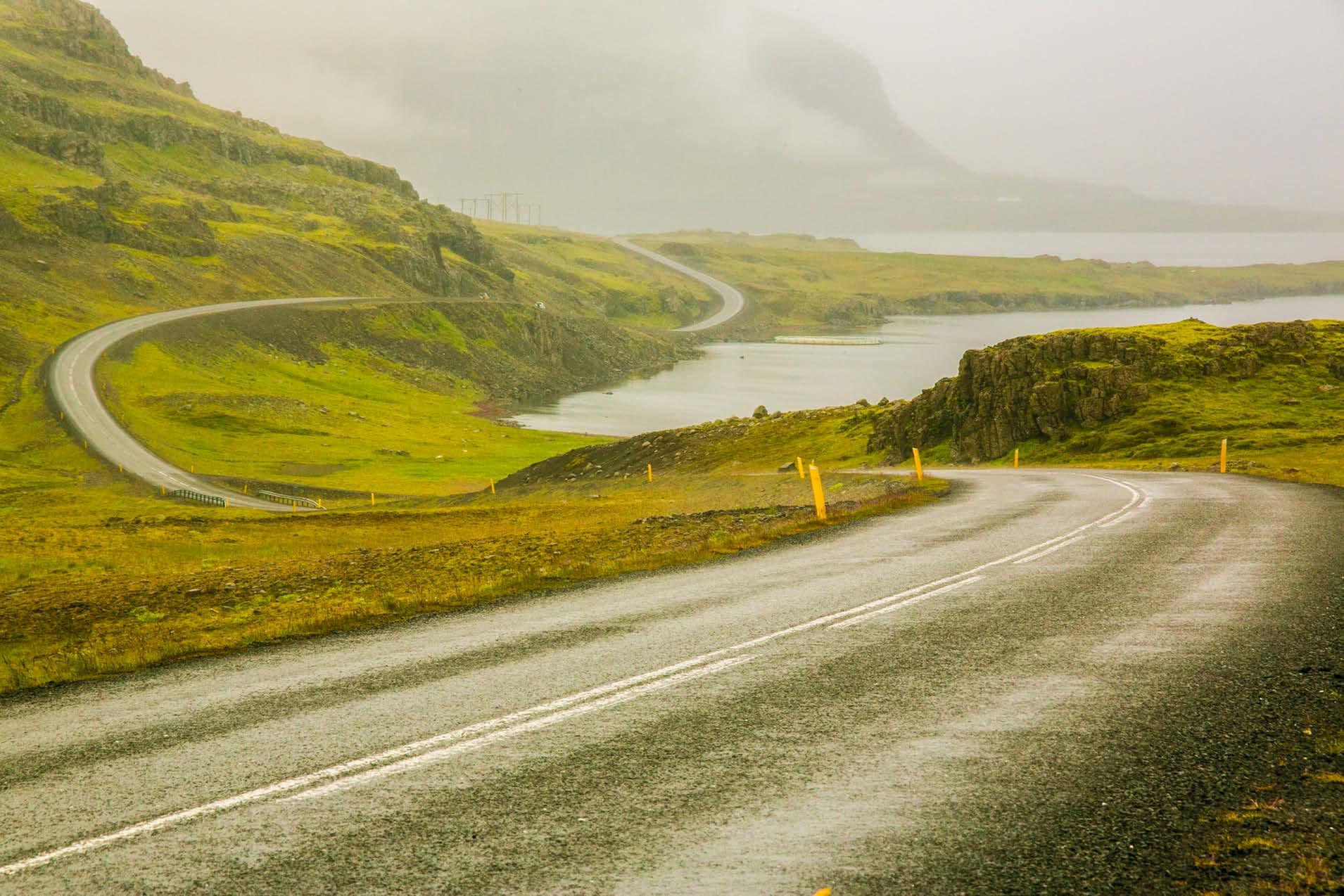
2.2 Our Sustainable Competitiveness
At Irizar we also call Sustainability Sustainable Competitiveness, to make clear our conviction that Competitiveness is not possible without Sustainability, or vice versa. We are convinced that in the long-term companies can no longer choose between profitability or sustainability, there is no proitability without sustainability.
For a number of years, sustainability has been one of the three key priorities of our Group's future strategy, and it drives us forward and commits us to working by contributing to the construction of a better World for everyone. Because we understand the future must be sustainable or there will be no future.
For years this commitment has been part of the culture of the people who make up the Irizar Group Despite the sharp drop in sales at the Irizar Group during both the 2009 economic crisis and in 2020 and 2021, we have maintained employment of the people who make up the Irizar Group practically the same. The reduction in employment was not very significant in comparison with the drop in sales. And we've strengthened communication and training with the goal of continuing to prepare ourselves for the new challenges of the future. We understand that economic development and job creation are fundamental in our commitment to sustainability, even in the greatest difficulties.
Despite its growing diversification, the majority volume of the Irizar Group is fundamentally based in manufacturing and commercialising buses, coaches and components. So, even though in 2021 there was only a slight increase in consolidated billing of 5.3% over 2020 (2019 was a record year), it was also a year of opportunities and progress in terms of strategic positioning in which we've also kept reaffirming our focus on sustainable mobility as the guide for our future growth.
and of the projects and decisions that are addressed by the different companies of the Irizar Group. Our actions seek to promote it and integrate it into our strategy and operations in all the Group’s production plants and companies at international level.
Sustainability is required as an important competitiveness factor for sustainable growth and an essential competitiveness advantage for the future of Irizar.
The following graph is the best evidence of our real commitment to Sustainable Competitiveness (economic/governance, social and environmental) and reflects consistency with our Mission.
Evolution of sales and employment at the Irizar Group
Consolidated turnover (millions of euros)
3200 Employment generation (people)
3000
2800
2600
2400
2200
2000
1800
1600
1400
1200
1000
800
600
400
200 As we anticipated at the beginning of this chapter, 2020 and 2021 will go down in history as the Covid-19 years, a parenthesis that represented a change in the upward trend of the Irizar Group's production and economic activity. Tight restrictions on public transport and general mobility to control the spread of the virus have hit this sector hard, especially medium and long-distance passenger transport, as well as international tourism.
The drop in passenger volume affected different segments of the markets differently in 2020 and 2021. The fall in bus and coach registrations in Europe was greatest for discretionary transport, followed by long distance, medium distance, urban and intercity. The chart below shows data for Spain, but the other European countries behaved in a similar way.
In this context, at Irizar we have continued to reinforce the three strategic lines for the future. Our motto "Moving Forward" continues to inspire us and reflects the spirit of those of us who make up the Irizar Group. We have therefore taken advantage of this period of inaction to further consolidate our position, customer proximity strategy and our brand, always with an eye to the future. We have redoubled efforts to create even greater customer proximity and adapt to their new situations, by committing to more sustainable and efficient solutions.
At the Irizar Group, we are prepared to come back strongly to target our objectives and return to the path of growth.
Registrations of buses and coaches relative to 2019 2020
Discretionary transport Long distance Medium distance Urban Intercity -76% -62% -50% -45% -43% 2021
-67% -51% -34% -26% -22%
2.2.1 Sustainability as a strategic priority
We keep focusing our efforts so Irizar can become a global actor in sustainable mobility for urban and medium and long distance transport, which is why we keep integrating sustainability as an indispensable value for the future into our strategic plans. At the same time we keep searching for innovative solutions with a high technological content that lets our clients, who without a doubt guide the goals we set for ourself, operate their services in a more efficient and sustainable way.
We don't have the slightest doubt that the future will include collective public transport as a fundamental solution for achieving sustainability.
Reducing the impact of our vehicles, eliminating emissions of greenhouse gases (GHG) and noise pollution, improving information for users and increasing passenger safety are our priorities. We judge these to be the foundations on which to build all our sustainability actions that society demands of us. And that is where we want to be. We are continuing to innovate, because innovation is in our DNA, and being close to our customers, adapting to their new circumstances. Accordingly, we're focusing on the entire life cycle of our vehicles, from their development, starting with extracting the raw materials, to production and use, up to the end of their life.
Along these lines, we are continuing to collaborate with our stakeholders in the generation of shared and sustainable long-term value, by including the three dimensions of sustainability: economic (and governance), social and environmental:
• Customers, passengers and citizens • People (workers and cooperative members), • External partners, Supply Chain and Alliances • The environment • Society in general,
It's a process geared towards including their concerns into our strategy and operations: social, environmental and ethical, respect for human rights (in all links of our supply chain), in order to: • Maximize the creation of shared value for all the aforementioned stakeholders; • identify, prevent and mitigate their possible adverse consequences and risks.
Business sustainability is the future, not just for the well-being of the company and the planet, but also for the economic stability of the market. Our future success depends on us going far beyond the search for economic profitability and compliance with applicable legislation (local, regional, national, foreign, and international laws) and internal regulations. All within a culture and business approach of integrity that is governed by Ethical Principles.
Our firm commitment to sustainability is led by the CEO, because they're the highest ranking company leader who guides the rudder of the organisation and, consequently, they're the one who can make the change of course towards more sustainable models happen. Furthermore, we understand that sustainability management should not wait. We must make progress to achieve it transversally, not secondarily, and it must be led by the rest of the members of the management team to expand throughout the global management of the company into all the departments, areas and people involved. It means not just showing leadership inside the company but extending it to the value chain and, to the extent possible, throughout the industry and the entire business ecosystem.
We are convinced that our sustainable action inspires confidence in both leaders and stakeholders and generates a competitive advantage in times of change and uncertainty and, at the same time, allows us to address the economic, social and environmental challenges faced by Humanity and the Planet.
In the following chapters (from 3 to 7) we'll see in detail how we generate value for each one of our stakeholders.
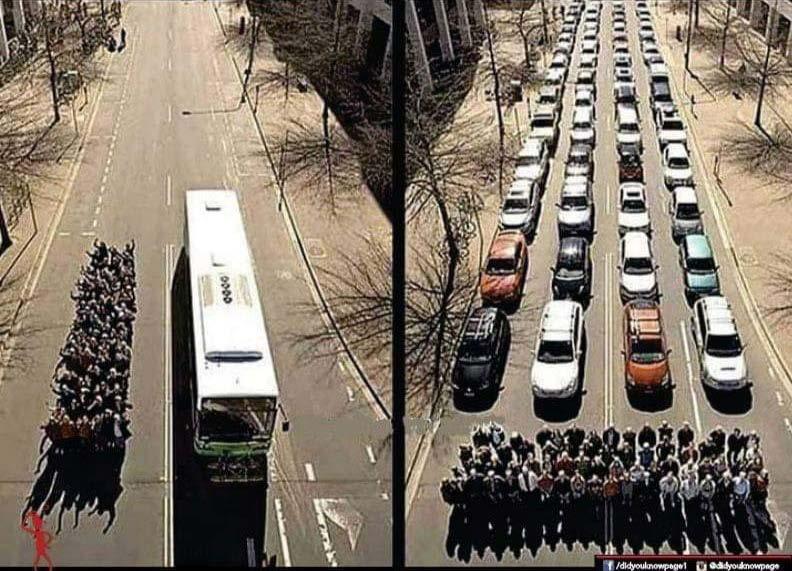
A bus can transport as many people as 50 cars.
2.2.2 Our global reference frameworks
Our business sustainable business model is inspired by the largest voluntary World Reference Frameworks in corporate Sustainability: the 10 Principles of the United Nations Global Compact and the 17 SDGs of the United Nations 2030 Agenda. Respectively, they both help us focus HOW to operate in a sustainable way and WHAT to do.
At Irizar S. Coop. we've been members of the United Nations Global Compact since 2013 and every year we create a sustainability report renewing our firm commitment to moving towards the implementation of the 10 Principles and contributing to the Sustainable Development Goals; and drawing together the main initiatives and progress on the actions that we are engaged in with our stakeholders.
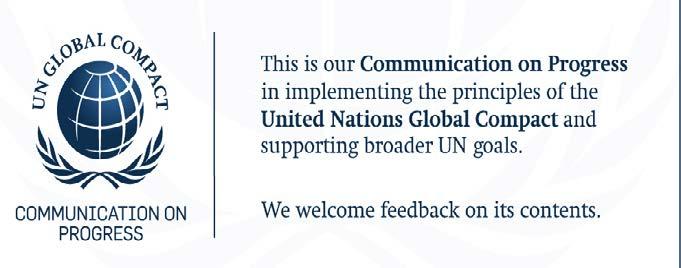
This Report is a reflection of our Transparency and we are publishing it on different internal and external media through our website and the United Nations website.
https://www.unglobalcompact.org/what-is-gc/participants/19510#cop
The 10 Principles of the Global Compact are the essential values since the birth of this United Nations initiative in 2000. Basing businesses on those principles means more than mere standards compliance.
The Ten Principles of the Global Compact are based on Universal Declarations and Conventions and enjoy universal consensus: They are articulated in four main areas:
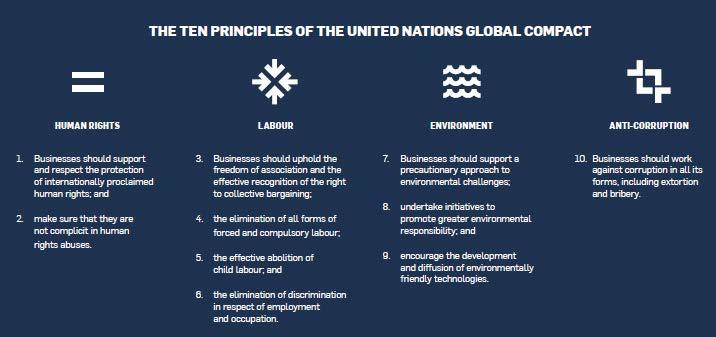
Human Rights: Principles 1 and 2 are derived from the Universal Declaration of Human Rights.
Labour: Principles 3, 4, 5 and 6 are inspired by the ILO's Declaration on Fundamental Principles and Rights at Work.
Environment: Principles 7, 8 and 9 are based on the Rio Declaration on Environment and Development.
Anti-Corruption: Principle 10, the last to be incorporated, is based on the United Nations Convention Against Corruption.
https://www.unglobalcompact.org/what-is-gc/mission/principles.
These 10 Principles are the reference framework for HOW to make progress in acting responsibly. They undoubtedly mark the way for us to manage risks better and avoid any negative impacts in the 4 main focus areas, with the aim of ensuring that our operations are conducted in a way that benefits both economies and societies worldwide. For more information about the principles see:
Although reflecting our commitment to the 10 Principles is the main objective of this Report, in section “2.3. Committed to the Principles of the Global Compact” we provide a table showing the chapters / sections of this Sustainability Report with the areas and principles.
The 2030 Agenda and the 17 United Nations SDGs
In 2015, the Member States of the United Nations General Assembly approved the 2030 Agenda on Sustainable Development, consisting of 17 Sustainable Development Goals (SDGs) and different targets, to “eradicate poverty, protect the planet and ensure prosperity”. It encompasses all three dimensions of sustainability: economic/governance, social and environmental. Its goal is to make the world a more sustainable and prosperous place. The United Nations assigns a leading role to companies in its implementation. A new way to improve everyone's life, without leaving anyone behind.
Five years later, the UN, in its Annual Report on the status of the SDGs, confirmed that progress had been made, but not fast enough to meet the targets on time. Covid-19 has only increased inequalities in the world, further highlighting the need to apply the 2030 Agenda to enable a sustainable and inclusive recovery.
For the next few years, the SDGs will stimulate action in the following areas of critical importance for humanity and the planet.
• PEOPLE: End poverty and hunger in all their forms and guarantee dignity and equality. • PEACE: Promote peace, justice and inclusive societies. • ALLIANCES: Implement the Agenda through a strong global partnership • PLANET: Protect our planet's natural resources and the climate for future generations. • PROSPERITY: Ensure prosperous and satisfying lives in harmony with nature.
The 2030 Agenda 2030 involves 17 Sustainable Development goals and 169 targets to be met in 2030. The SDGs focus on us creating positive impacts, contributing to sustainable development and finding business opportunities.
Now is the time we need to move from economic value to shared value and align the success of the company with the success of the community. It's not philanthropy, but rather business intelligence because there won't be prosperous businesses without prosperous environments. That spirit of shared value is, in fact, what the 2030 Agenda (the United Nations plan for humanity) propagates. The UN gives companies a leading role in sustainable development because they believe that, as motors of the economy, companies have their hands on the lever to bring about systemic change through rethinking products and services or reorienting business, among other things. The 2030 Agenda is currently the framework for business sustainability. When its term expires, of which there are only eight years left, sustainable management that provides business benefits will continue. It's entirely extendible into the future.
The SDGs are the reference framework for WHAT to do, and they encourage us to conclude that it is not enough to do what we already do, but that we also have to change HOW we do it. We need to transform, not just rebuild what was not working.
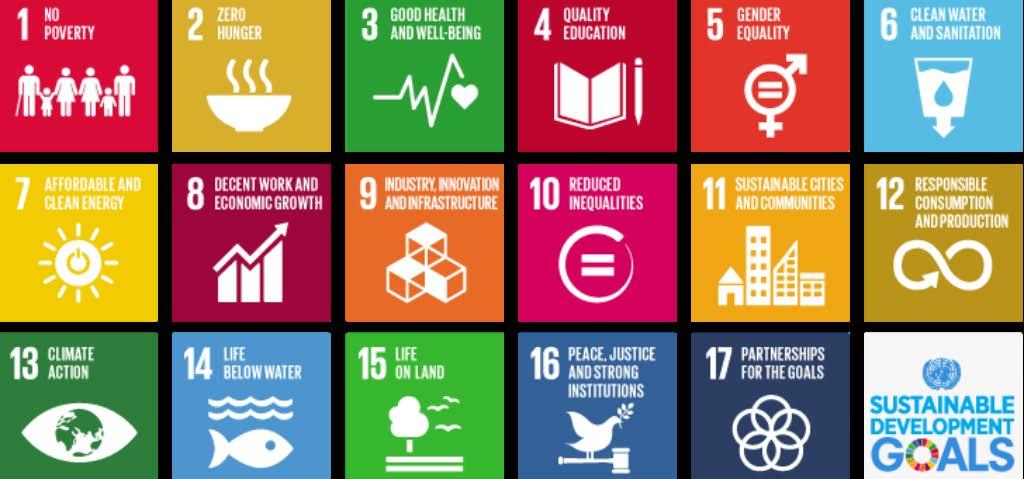
Our progress in our commitment to the SDGs is set out in Section “2.4 Committed to the SDGs of the UN’s 2030 Agenda”. At the beginning of each chapter dedicated to a stakeholder group, the SDGs and goals with which its content is related are indicated.
Further information on the SDGs: - https://www.pactomundial.org/ods/ - https://www.unglobalcompact.org/sdgs/about
2.2.3. We are a responsible organization
Sustainability strategy and performance include corporate responsibility (which affects everyone and everything), and responsibility with each stakeholder (which is included in detail in the rest of the chapters of this Report).
We integrate sustainability in our strategy and management
• Sustainability is present in strategic decision-making and daily management, in line with the 10 Principles of the Global Compact (see previous and next sections, as well as the remaining chapters).
• In 2018 we began our approach to the United Nations 2030 Agenda and we recognize the opportunity presented by the Sustainable Development Goals (SDGs).
• In 2020 we made progress with including them into our strategy and operations to contribute to the achievement of the SDGs as a roadmap to boost the prosperity of people and the planet. We prioritised and started working on seven SDGs and goals that have a special impact on our activities and extensive value chain. You can find more details about our commitment to the SDGs in section 2.4.
• In the annual assemblies, where everybody at Irizar S. Coop. participates, sustainability is always addressed within the global strategy and progress of the company (its dynamics may be seen in detail in chapter 4 about people). For example: o Sustainability is an essential key competitiveness factor of the Irizar Group o The new version of the code of ethics was presented for approval by all the members in 2020. o Our high priority and transversal SDGs from the 2030 Agenda were presented in 2020. o In 2020 and 2021 sustainability was addressed as an axis upon which the rest of Irizar's strategies, especially sustainable mobility are based.
• We continue to make clear progress in training and raising awareness of people in sustainability.
o Details of actions in 2021 can be seen in chapter “4. We create value for our People”. o In 2021 we can highlight the training in sustainability and SDGs/2030 Agenda begun by the management team. The involvement and leadership of the management team is fundamental for making progress towards putting sustainability in practice transversally not just secondarily. o We'll subsequently keep promoting training for them and also deploying it for leaders and the rest of the people in the organisation. The commitment to the achievement of the future objectives set is important.
• As we will explain also in the dedicated chapter “4 We create value for our People”, we do in depth reviews of the strategic thoughts every three or four years, with SWOT analyses that take account of economic, social governance and environmental issues. This serves to establish priorities and define actions with the objective that the Group's strategy is aligned with everyone's expectations and thus guarantees their needs, sustainable growth of the business, and generation of value, wealth, and employment, as it reflects our mission.
The Irizar Group is exposed to risks that are directly related to the productive or commercial activities of its divisions or that result from external influences. These are risks that may prevent the Group, or any of its business areas, from achieving its objectives. At times, the risks translate into opportunities that must also be identified and exploited. Therefore, in the Irizar Group and all its business areas, risk and opportunity analysis is immersed in the culture, strategy, and management of each of the teams and processes. It is automatically integrated into strategic plans and decision-making to prevent illicit practices or those outside our framework of ethical action.
As mentioned previously, the next in depth review of Irizar's strategic thoughts that was planned for 2020 had to be postponed because of the pandemic and it is now planned for 2023. Sustainability plays a fundamental role, in accordance with our future strategic lines.
• We remain committed to dialogue with all of our stakeholders. It helps us to listen to their concerns and needs and identify future trends to build trust and therefore increasingly consolidate our relationship with them. At the same time, it is an ideal way of transparently showing and sharing our assessments and our fields of action as well as all of the challenges we face. Discussions take place through regular meetings and different communication channels.
• Despite the serious impact Covid-19 had on our business in 2020 and 2021 the decrease in employment wasn't very significant.
• We continue to promote and oversee, from senior management (in collaboration with the other corporate governance bodies), to ensure that this commitment and sustainable action, beyond the people who work at Irizar, spreads among the rest of the stakeholders (clients, suppliers, external collaborators, government agencies, etc). Because risk reduction is vital in order to guarantee our reputation and the success of the long-term corporate strategy.
We keep making progress in transparency, good governance and integrity. Therefore, we rely on our open culture and our firm conviction that only business activities that respect corporate ethics and sustainability constitute the only possible foundation for achieving sustained business success beyond compliance with internal regulations and applicable legislation (local, regional, national, foreign, and international).
• Throughout this chapter, we address in particular our common tools to facilitate our good governance.
• Along those lines, a first draft of the code of ethics was created in 2017 that we have kept developing and putting into practice subsequently. The improved version of our code of ethics, created by the governing council in conjunction with the management team, was approved in 2020 by all the members in a general assembly. The new code of ethics is new version of our ethical principles and behaviour guidelines. It's the road map for everyday behaviour based on the fundamental principles of human rights, labour standards, the environment and the fight against corruption.
• In developing the code of ethics a crime prevention programme is set forth that includes a detailed analysis of the criminal risks that could hypothetically arise in different business areas and companies that make up Irizar and potential violations of regulations that could occur in them.
• Likewise, insofar as issued that may affect employees, like situations of discrimination, harassment, bullying or workplace safety, among others, specific channels are being created for communicating and handling any inappropriate behaviour that may occur.
• In 2021, work was done on the protocol for sexual harassment gender based harassment in the workplace, which we expect to be approved by the organisation's upper management and put into practice in 2022.
• The ethics and compliance committee will analyse all notifications it receives in a reasonable length of time. If the notification is deemed to deserve closer attention, the committee will send the documentation to the relevant department in order to jointly evaluate the facts and determine the measures to be taken.
• In the future we expect to improve the ethics and compliance system (common corporate values, code of ethics, crime prevention system, channels of communication, channels for reporting, notifying about incidents and actions) and the system for protecting personal data and guaranteeing digital rights. With the goal of taking into consideration the evolution of patterns of sustainability, legal changes or new risks not previously addressed.
Transparency contributes to improving our credibility, reputation and brand, which increases the confidence our stakeholders have in us. To those ends, we're making public all the information you need to know more about Irizar.
As we will see in the following chapters, we have multiple channels of communication with stakeholders, including our Sustainability Reports discussed in the previous section “2.2.2. Our global reference frameworks”.

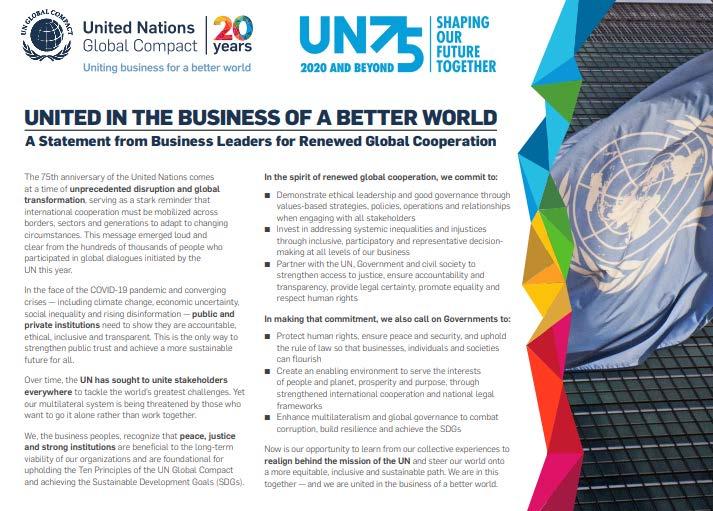
Sustainability Report, we can highlight our double link with the United Nations Global Compact: worldwide and Spanish. At Irizar S.Coop, since 2013 we have been firmly committed to the United Nations Global Compact, the largest voluntary initiative for Corporate Sustainability in the world. It serves as a reference framework for all our strategic progress in Sustainability and strengthens our clear commitment to Transparency through our annual Sustainability Report. Since 2018, we have been partners of the Global Compact Network Spain (multi-stakeholder association that acts as a focal point for the United Nations Global Compact in Spain). Proactive participation enables us to show a greater commitment to sus-
In addition to all the agreements and alliances that we will address in subsequent chapters of the • In 2020, the CEO of the Irizar Group (along with 1000 business leaders from more than 100 countries) made their support for the United Nations and multilateralism visible and even signed an ambitious “declaration in favour of renewed global cooperation” as part of the commemoration of the 75th anniversary of the UN. The declaration maintains its relevance given the state of the world in 2021. On the website of the United Nations there is an updated list of signers.
https://ungc-communications-assets.s3.amazonaws.com/docs/publications/UN75_UnitingBusinessStatement.pdf
tainability, interact with the main agents of change (not only at the Spanish level but also internationally), generate shared values between the company and its environment, learn and share best practices, and strengthen relationships with stakeholders.
• Irizar S.Coop., as a partner of the Spanish Global Compact Network, interacts with other organizations and agents (Spanish or international), with the purpose of generating shared competitive value and strengthening relationships with stakeholders. It participates in several activities like workshops organised by the Global Compact and the Spanish government, open-doors days at Irizar to share experiences with companies, educational institutions and SDG benchmarking to learn alongside other companies. In 2020, all the sessions had to be held remotely.
o In 2019, we celebrated their 15 years of leadership in sustainability with the Global Compact Spanish Network, because it's the local network with the most signers of the UN Global Compact and it's positioned as a worldwide leader because of its noteworthy operability and stability. One highlight of the event was the participation of Cristina Gallach, High Commissioner for the 2030 Agenda for the Spanish government, with whom we had the privilege of exchanging opinion about the 2030 Agenda and the need to alliances between the public and private sectors to reach the SDGs. o In 2020 and 2021, all the sessions had to be held remotely.
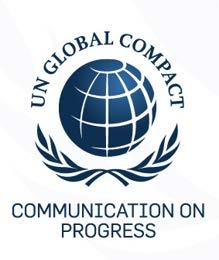
• In late 2020 we joined the SDG Ambition accelerator programme from the United Nations Global Compact, in which more than 700 companies participated over six months. It is pioneering training programme with a new methodology to help set ambitious SDGs (sustainable development goals), integrate them into the centre of our strategy and operations and measure our progress. So we can definitively contribute to the prosperity of people and the planet.
In addition to Irizar representatives actively participating, until June 2021 in the SDG Ambition programme, the CEO of the Irizar Group has reaffirmed our commitment as a high level ambassador in following our progress in the SDG Ambition. Further information on SDG Ambition can be found at:
https://unglobalcompact.org/news/4593-09-21-2020
You can see the dossier created by the Spanish Global Compact Network after the SDG Ambition training work in 2021 at:
https://www.pactomundial.org/biblioteca/sdg-ambition-resultados-i-edicion/
This certificate is awarded to
Mentxu Baldazo
in recognition of your completion of the United Nations Global Compact SDG Ambition Accelerator
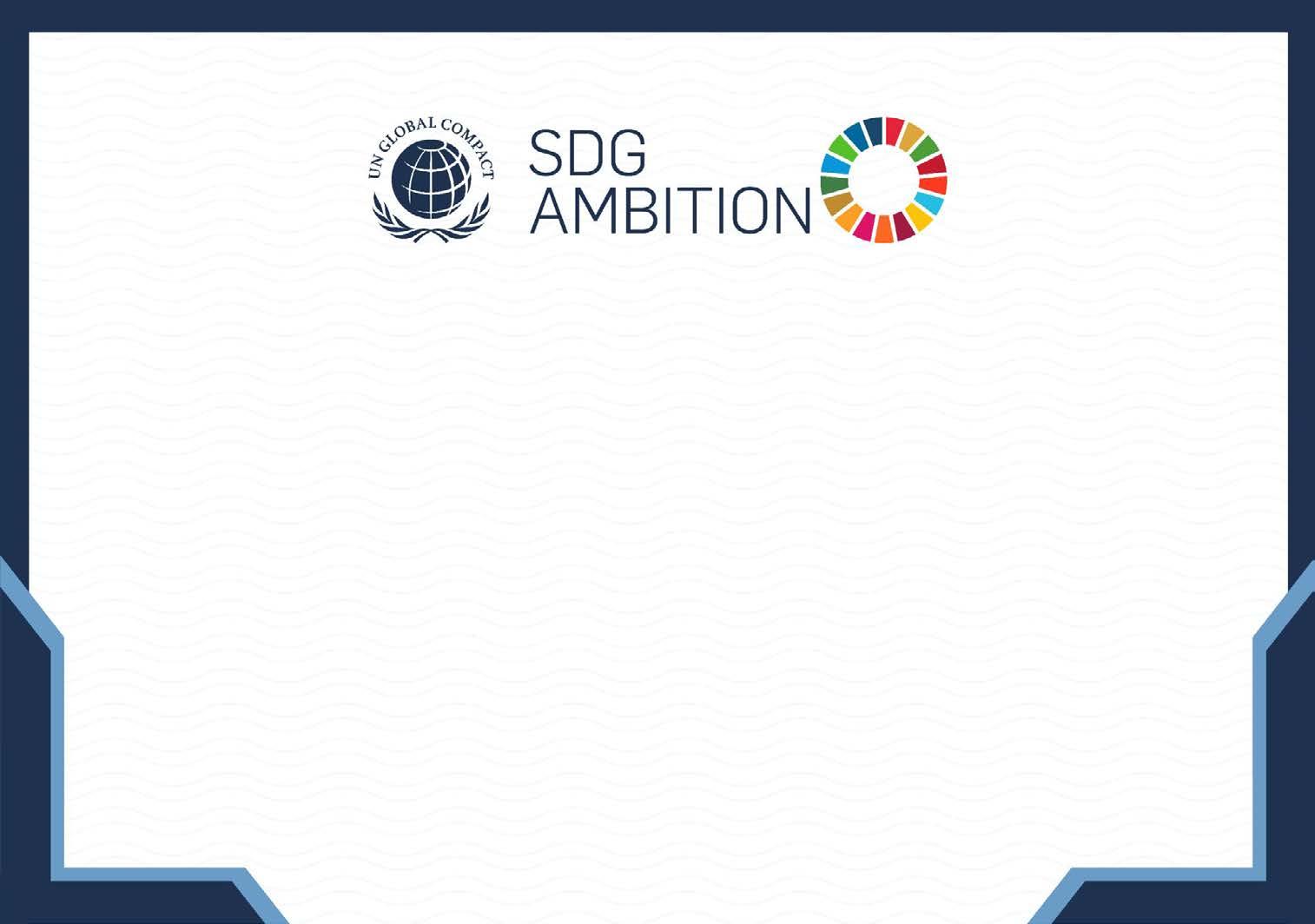
2021
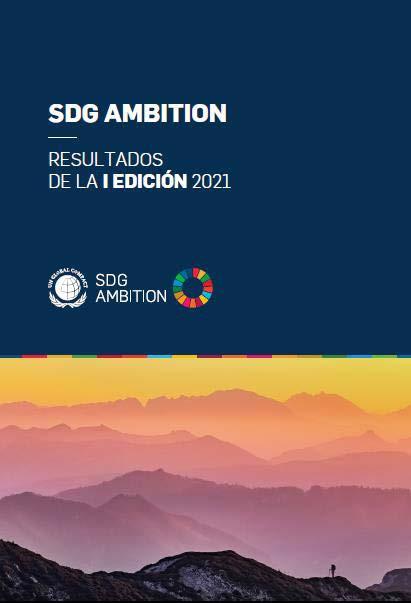
Although in this 2021 Sustainability Report we can reflect Irizar's commitment to each Principle of the United Nations Global Compact in more sections, this table shows the relationship with those where it is most relevant.
AREA PRINCIPLE WE CREATE VALUE FOR
Principle 1 Businesses should support and respect the protection of internationally proclaimed fundamental human rights within their sphere of influence Principle 2 Businesses should ensure that their companies are not complicit in human rights abuses Principle 3 Businesses should uphold the freedom of association and the effective recognition of the right to collective bargaining Principle 4 Businesses should support the elimination of all forms of forced or compulsory labour Principle 5 Businesses should support the abolition of child labour
Principle 6 Businesses should support the elimination of discrimination in respect of employment and occupation Principle 7 Businesses should maintain a preventive approach to environmental challenges
Principle 8 Businesses should undertake initiatives to promote greater environmental responsibility 2. Irizar and Sustainable Competitiveness 4 We create value for our people 7. We create value for Society
5 Irizar and Sustainable Competitiveness 6. We create value for our external partners, supply chain and alliances
4 We create value for our People – Company Board, any Regulation of Internal Arrangements and Collective Agreement 5 We create value for our external partners, supply chain and alliances - Sustainability requirements for our suppliers
4 Irizar and Sustainable Competitiveness 5 We create value for our People - People. Key Actors in Sustainable Competitiveness - Commitment to Quality Employment 6. We create value for our external partners, supply chain and alliances - Sustainability requirements for our suppliers 4 Irizar and Sustainable Competitiveness 5 We create value for our People - People. Key Actors in Sustainable Competitiveness - Commitment to quality employment 6. We create value for our external partners, supply chain and alliances - Sustainability requirements for our suppliers
4 Irizar and Sustainable Competitiveness 5 We create value for our People - People. Key actors in sustainable competitiveness - Gender equality, diversity and social inclusion 6. We create value for our External Partners, Supply Chain and Alliances - Sustainability requirements for our suppliers 2. Irizar and Sustainable Competitiveness 3. We create value for our clients, passengers and society – Race to Zero – a European leader in eco-innovation – Decarbonisation: in internal combustion vehicles with hybridisation, zero-emissions electromobility and green hydrogen as an energy vector. 5 We create value for our External Partners, Supply Chain and Alliances - Sustainability requirements for our suppliers 6. We create value for the Environment 2. Irizar and Sustainable Competitiveness 3. We create value for our clients, passengers and society – Decarbonisation: in internal combustion vehicles with hybridisation, zero-emissions electromobility and green hydrogen as an energy vector. 5 We create value for our external partners, supply chain and alliances - Sustainability requirements for our suppliers 6. We create value for the Environment
Principle 9 Businesses should encourage the development and dissemination of environmentally friendly technologies Principle 10 Businesses should work against corruption in all its forms, including extortion and bribery 2. Sustainable Competitiveness - Our sustainable competitiveness 4 We create value for our People - People. Key actors in sustainable competitiveness - Communication, transparency and participation 5 We create value for our External Partners, Supply Chain and Alliances - Sustainability requirements for our suppliers
3. We create value for our clients, passengers and society – Decarbonisation: in internal combustion vehicles with hybridisation, zero-emissions electromobility and green hydrogen as an energy vector. 6. We create value for the Environment
2.4. Committed to theSDGs of the UN’s 2030 Agenda
Irizar supports the Sustainable Development Goals Summarizing what we have already addressed earlier in this chapter regarding our Commitment to the SDGs of the 2030 Agenda:
• In 2018 we began our approach to the United Nations' 2030 Agenda and published our commitment to contributing to the SDGs.

• In 2020 we made progress in integrating the achievement of the SDGs in our strategy and strategy as they are the roadmap for boosting the prosperity of people and the planet. o Although our objective is to contribute to achieving the 17 SDGs, evaluating our strategy of creating value for our shareholders, we believe that Irizar, due to the nature of our activity and extensive value chain has greater capacity to influence the SDGs, as explained below. o At the 2020 Summer Assembly (where we addressed global strategy and advancement of the company, open to the participation of all Irizar S.Coop people), the CEO presented the 7 Sustainable Development Goals (SDGs) of the 2030 Agenda that we've chosen at Irizar to be high priority and transversal. o The SDGs are interrelated, so by acting on the high priority and transversal SDGs we're also making an impact on what we call secondary SDGs in an indirect way through our operations (to a greater or lesser extent), or because their essence is contained in other SGDs that have already been dealt with. o At the end of 2020, we signed up to the SDG Ambition Accelerator Program of the United Nations Global Compact, as we mentioned in section “2.2.3 We're a Responsible Organisation”, in which we participate with more than 700 companies internationally for six months to be better prepared for setting ambitious SDG goals and integrate them into our strategy and operations, measuring our progress, to contribute to prosperity for people and the planet.
• In 2021 we can highlight the training in sustainability and SDGs/2030 Agenda begun by the management team. The involvement and leadership of the management team is fundamental for making progress towards putting sustainability in practice transversally not just secondarily. • We'll subsequently keep promoting training for them and also deploying it for leaders and the rest of the people in the organisation. The commitment is important for achieving the goals set for the future.
Promote sustained, inclusive and sustainable economic growth, full and productive employment, and decent work for all people equally. Build resilient infrastructure, promote inclusive and sustainable industrialization, and foster innovation. Make cities and human settlements inclusive, safe, resilient and sustainable. Guarantee sustainable consumption and production patterns. Adopt urgent mea- sures to combat Climate Change and its effects.
Priority SDGs
We make a direct impact through our operations
Cross-cutting SDGs
These are the foundations of our commitment (with Ethics, Law and Human Rights), cutting across all internal areas and all stakeholder groups.
Achieve gender equality and empower all women and girls. Promote just, peaceful and inclusive societies.
The 7 priority and cross-cutting SDGs are those that, due to their importance and impact, we are going to pursue with the greatest ambition to work on Irizar's commitment to achieving the 2030 Agenda. To those ends, we chose the goals for each one in order to set the most ambitious objectives and indicators possible aligned with the 2030 Agenda and make progress towards achieving them.
Priority SDGs
8.1. Maintenance of economic growth
Raising productivity through diversification, technology and innovation Achieving full employment and decent work Eradication of slavery, trafficking and child labour Protection of labour rights and safe work
9.2.
9.4.
9.5.
9.B.
SDG goals to be addressed
Promotion of inclusive and sustainable industry Infrastructure modernization, clean technology Increase in scientific research, technological capacity Development of national tech- nology and research in developing countries.
11.2.
11.6. Providing access to public transport
Reduction of environmental impact in cities
12.2.
12.4.
12.5.
12.6.
12.8.
12.B. Achieving the efficient use of natural resources Management of waste and chemicals Prevention, reduction, recycling and reuse of waste Adoption of sustainable practices in businesses Ensuring education for Sustainable Development Achieving sustainable tourism
13.1.
13.3.
Cross-cutting SDGs
5.1. 5.5. Ending discrimination Ensuring the full participation of women and equal opportunities in leadership
16.2.
16.5.
16.7.
16.10.
16.11. Eradication of child abuse, exploitation, trafficking and exploitation Reducing corruption and bribery
Promoting citizen participation
Access to information and fundamental freedoms Promotion and application of laws and policies (HHRR) Strengthening resilience and adaptation Improving environmental education and awareness
More progress with integrating our contribution into the SDGs
• In the first quarter of 2021 we did an exhaustive analysis of possible indicators we could use to make progress in integrating the SDGs into our 2030 IRIZAR AGENDA. It's a BASE document in a table format to facilitate setting SDG GOALS and high priority + transversal goals, including possible indicators, data up to the present, and goals/commitments. It makes it easier to understand the scope of each SDG and focus the hard work they require, because the 2030 Agenda is an action plan in favour of people, the planet, prosperity, peace and teamwork. The draft of the table includes contributions by the CEO, Environment and External Communications, in addition to the sustainability manager.
It's centred on our high priority (8, 9, 11, 12 and 13) and transversal (5 and 16) SDGs, including their relationship with the PRINCIPLES of the Global Compact and an inventory of possible qualitative or quantitative contributions/INDICATORS for each GOAL.
• Some indicators will only be for tracking progress. • However, the ones we deem to be the most relevant/indispensable should have a realistic but ambitious GOAL. We can think about what are called “SMART goals” (specific, measurable, achievable, relevant and time-related). • And with a time limit: DATE and taking the base line of the commitment into account (a specific point or period in time to measure from). • There are also columns for showing data from recent years that can be used to help see the progress and set a goal.
The SDG indicators and goals are not an annual management plan (IH) and, even though we can set annual goals, the idea is to set long-term milestones and intermediate goals/ deadlines to show our commitment with the 2030 Agenda.
• At the end of 2021, with the active involvement of the CEO, we defined actions to start our contribution to the high priority and transversal SDGs. It will be started after 2022: setting related goals, indicators, objectives and deployment with various managers and teams of the affected areas: Product Development (innovation and engineering), the Environment, Purchasing and relationships with Suppliers, Production, People-HR, CEO and other entities in the cooperative, etc.
• We expect to progressively integrate setting goals for the high priority and transversal SDGs into the annual strategic planning process that will be done at the end of 2022. We will review our actions, indicators and goals to align them with the 2023 (and beyond) Irizar strategy and involve more people. The management team and key people in all areas will participate in the process. The goal of making sustainability a strategic pillar at Irizar is to inculcate responsible behaviour at all levels of the organisation and ensure that the SDGs are progressively integrated into all areas of the company.
These commitments are what will allow us to achieve a greater positive impact on all our stakeholders.
Irizar disseminates and supports the SDGs in a campaign promoted by the Spanish United Nations Global Compact
With the intention to contribute and promote mobility for society in the Decade of Action, Irizar has joined the #apoyamoslosODS launched by the Spanish United Nations Global Compact for working on spreading the United Nations' goals. The goal is to act, out of its own commitment to the SDGs, as a spokesperson and obtain a multiplier effect to raise awareness and work on the goals of the 2030 Agenda. Corporate management based on the SDGs creates new business opportunities, improves relationships with stakeholders and promotes innovation.
We disseminated information about the campaign on our website, where you can see all the details. https://www.irizar.com/irizar-se-suma-a-la-campana-apoyamoslosods-promovida-por-el-pacto-mundialde-naciones-unidas-espana/ , and on social networks with short messages.
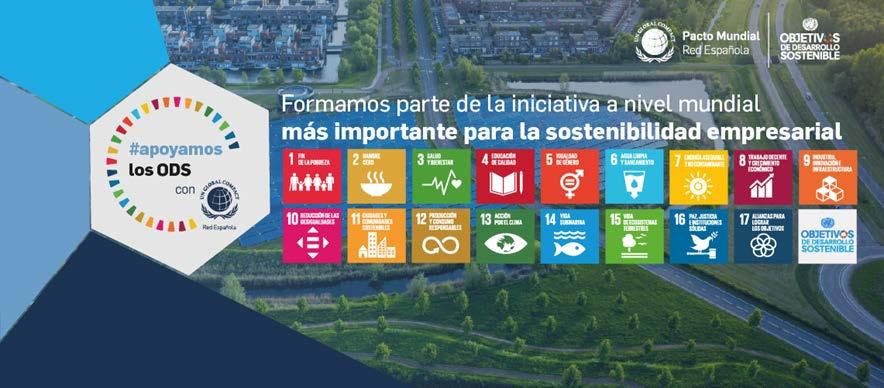
Sustainable competitiveness: Customers, Passengers and Citizens People External partners, supply chain, and alliances Environ- ment Society
Cross-cutting WE CREATE VALUE FOR
SDGs Sustainable competitiveness: Customers, Passengers and Citizens People External partners, supply chain, and alliances Environ- ment Society
Secondary
Addressed in SDG 8, 12 and 13
Addressed in SDG 12
Addressed in SDG 13
Addressed in SDG 5, 8 and 16




